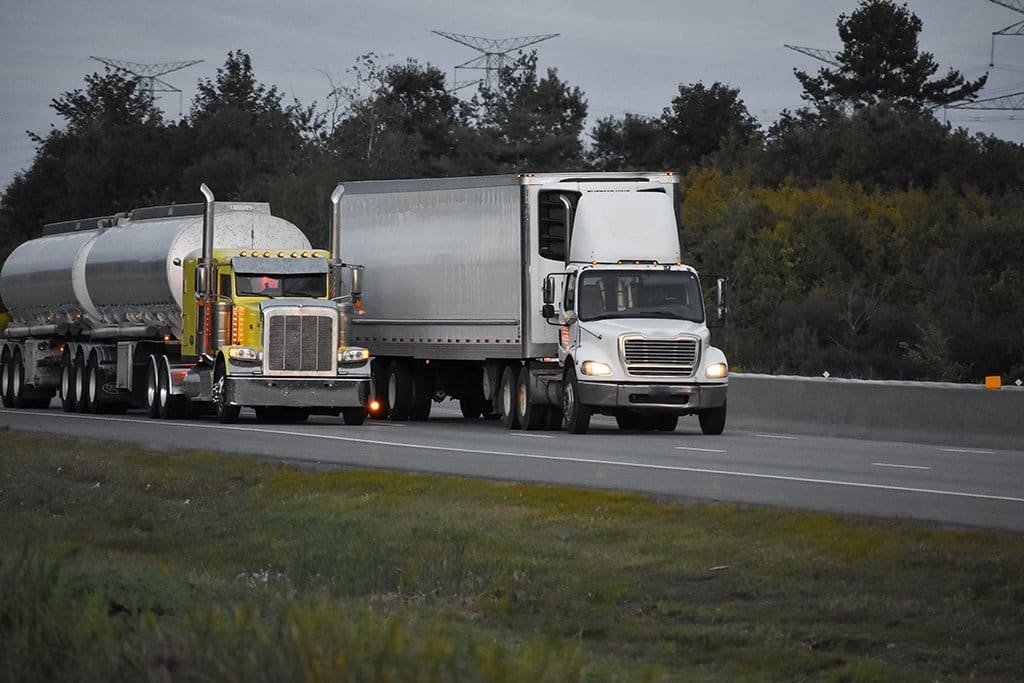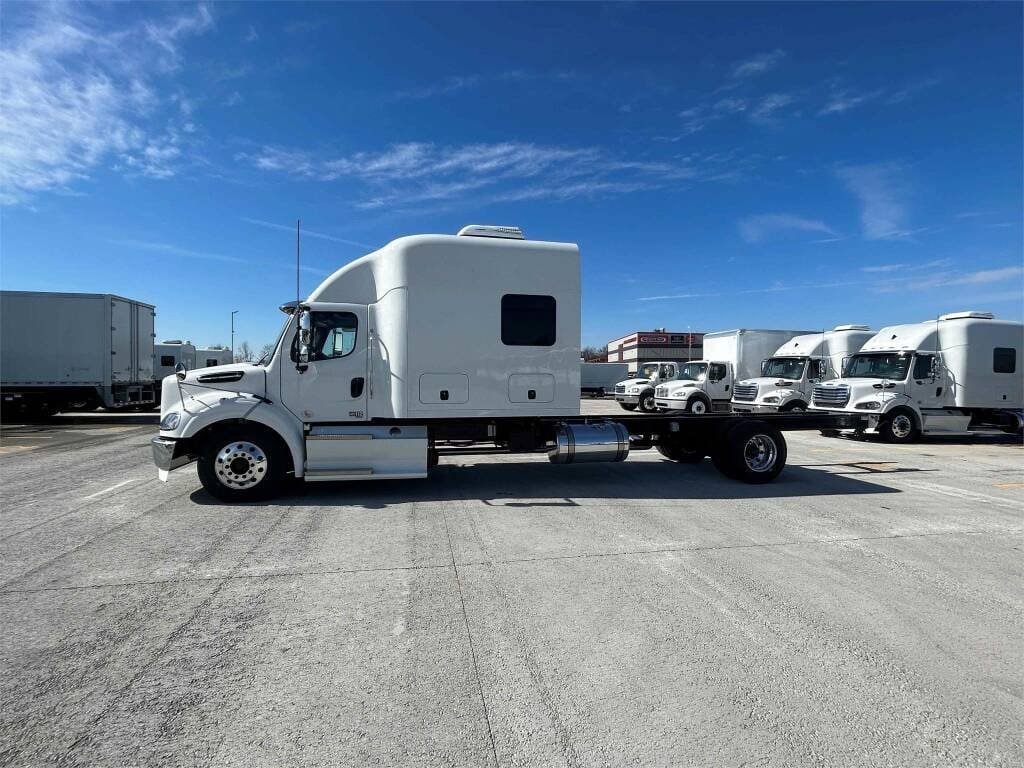Commercial driving can be one of the most challenging yet rewarding careers out there. For anyone with a CDL (Commercial Driver’s License), life on the road can mean seeing new places, experiencing freedom on the open highway, and playing an essential role in the economy by keeping goods moving from coast to coast. However, it also comes with its unique set of challenges that can make each day a test of endurance, skill, and resilience.
From battling fatigue on long hauls to dealing with tight delivery deadlines, CDL drivers encounter physical, emotional, and logistical hurdles that many people outside the industry may not realize. And while driving may seem straightforward, the reality is that CDL drivers often juggle much more than just steering the wheel. Safety concerns, health risks, and unpredictable schedules are part of the day-to-day struggles for many drivers, leaving them in need of reliable support and solutions.
That’s where recruitment and staffing agencies step in. These agencies do much more than match drivers with jobs—they help solve the challenges drivers face, offering everything from health resources to career guidance and safe job placements. In this article, we’ll dive into some of the most common issues CDL drivers face and explore how driver recruitment and staffing agencies play a key role in helping drivers overcome them.
Overview of CDL Driver Challenges

Life as a CDL driver is far from ordinary. While the job offers opportunities to travel and earn a living, it also comes with a host of challenges that test even the most experienced drivers. These challenges often fall into several categories, ranging from physical and mental strain to logistical and financial pressures.
One of the biggest hurdles CDL drivers face is maintaining their health and well-being. Long hours behind the wheel and limited access to healthy meals or exercise make it tough to stay in shape. Add to that the stress of meeting tight deadlines and navigating unpredictable road conditions, and the job can take a serious toll on both the body and mind.
Driver shortages have become a significant challenge in truck driver recruiting, impacting the ability to hire reliable drivers amidst high turnover rates and changing industry standards. Companies must enhance their recruiting strategies to overcome these shortages and keep their operations running efficiently.
Safety is another constant concern. Whether it’s dealing with hazardous weather, poorly maintained roads, or heavy cargo, CDL drivers often find themselves in high-risk situations. On top of that, they must stay up-to-date with ever-changing regulations, such as hours-of-service limits or vehicle compliance rules, which can add to their workload.
Then, there are the financial and career challenges. Many drivers struggle to find stable, well-paying jobs that offer good benefits. For independent owner-operators, the costs of running and maintaining their own rigs can be overwhelming. For others, the lack of clear career advancement opportunities can make the job feel stagnant.
Lastly, the isolation of life on the road can’t be ignored. Spending long stretches of time away from loved ones can lead to feelings of loneliness and burnout, further complicating the already demanding lifestyle.
These challenges are not insurmountable, but they do require support. That’s why recruitment and staffing agencies have become an invaluable resource for CDL drivers, helping them navigate these obstacles while building rewarding careers. In the following sections, we’ll explore each of these challenges in greater detail and highlight how agencies are stepping in to make a difference.
Physical and Health Challenges

Driving a commercial vehicle isn’t just a job—it’s a demanding lifestyle that often takes a toll on a driver’s physical health. Hours spent sitting behind the wheel, limited access to nutritious food, and the challenge of maintaining a balanced routine on the road can create serious health risks over time.
Long Hours and Fatigue
One of the most pressing issues CDL drivers face is fatigue. Long-haul routes often mean irregular schedules, extended driving hours, and limited opportunities for rest. Fatigue doesn’t just affect alertness; it can lead to more serious health problems like chronic exhaustion and weakened immunity. The lack of proper rest can also increase the risk of accidents, putting both the driver and others on the road at risk.
Health Problems from a Sedentary Lifestyle
Spending most of the day sitting in a confined space can result in various physical health issues. Back pain, joint stiffness, and even obesity are common among CDL drivers due to limited movement during their shifts. Additionally, finding healthy food options on the road is often a challenge, leading many drivers to rely on fast food or convenience store snacks, which can contribute to weight gain and other diet-related issues.
Solutions by Agencies
Agencies understand that a healthy driver is a safer, more productive driver. Many provide resources to help drivers manage these physical challenges. Here’s how:
- Flexible Job Placement: Agencies often work with companies to provide routes and schedules that allow for better rest and recovery. This ensures drivers are less likely to face chronic fatigue.
- Wellness Initiatives: Some agencies partner with wellness programs or fitness facilities to offer drivers discounted memberships, nutritional counseling, or tips on staying active even while on the road.
- Health Education: Drivers are sometimes offered informational resources on topics like stretching exercises for back pain, managing fatigue, and making healthier food choices on the go.
By addressing these physical challenges, agencies not only help drivers feel better but also improve their performance and safety on the job. This focus on health sets the stage for tackling the next major area of concern: mental and emotional challenges.
Mental and Emotional Challenges
The life of a CDL driver is often solitary, and while some enjoy the quiet of the open road, many drivers face significant mental and emotional challenges. Long hours away from home, high-pressure deadlines, and the unpredictability of the job can lead to stress, anxiety, and even burnout.
Isolation and Loneliness
One of the most common struggles CDL drivers face is isolation. Long-haul drivers can spend weeks or even months away from family and friends, leading to feelings of loneliness. The limited opportunities for social interaction on the road can exacerbate these feelings, making it harder for drivers to maintain strong personal relationships.
Stress from Road Conditions and Deadlines
The pressure to meet tight delivery schedules can be overwhelming. Drivers must navigate unpredictable traffic, weather, and road conditions, all while adhering to strict hours-of-service regulations. This constant state of stress can lead to anxiety and, over time, mental exhaustion.
Solutions by Agencies
Recognizing the mental and emotional toll of the job, agencies have developed strategies to support CDL drivers and promote mental well-being. These include:
- Peer Support Networks: Many agencies create or encourage participation in communities of drivers, whether through online forums, social media groups, or in-person meetups. These networks provide drivers with a sense of camaraderie and an outlet to share their experiences.
- Access to Mental Health Resources: Some agencies partner with mental health professionals to offer counseling or support services. This can include one-on-one therapy sessions, stress management workshops, or helplines for immediate assistance.
- Flexible Job Assignments: Agencies often work to place drivers in positions that better align with their personal needs. Whether it’s finding local routes to allow more time at home or adjusting schedules to avoid burnout, these efforts can make a significant difference.
- Work-Life Balance Advocacy: Agencies advocate for drivers to have manageable workloads and reasonable expectations from employers. By negotiating fair schedules, they help drivers maintain a healthier work-life balance.
Additionally, agencies assist job seekers in finding suitable positions that align with their personal needs and preferences.
Mental and emotional challenges are often overlooked but are just as critical as physical health for a driver’s well-being. By offering targeted support, agencies help CDL drivers stay focused, resilient, and connected, ensuring they can handle the demands of the job while maintaining a positive outlook. Up next, we’ll delve into workplace and safety challenges and the role agencies play in addressing them.
Workplace and Safety Challenges

Safety is at the heart of every CDL driver’s job, but it’s also one of the most challenging aspects of the profession. Whether it’s navigating hazardous conditions, managing heavy cargo, or staying compliant with regulations, CDL drivers face workplace risks every day. Ensuring safety not only protects drivers but also the public, making it a top priority for drivers and the agencies that support them.
Safety Concerns on the Road
Drivers often face unpredictable and hazardous situations, including:
- Adverse Weather Conditions: Snow, ice, heavy rain, and fog make driving large commercial vehicles even more dangerous.
- Heavy Traffic and Accidents: Congested urban areas and high-traffic highways increase the risk of collisions.
- Cargo Management: Improperly secured or overloaded cargo can create dangerous situations during transit.
These risks demand constant vigilance, precise skills, and strict adherence to safety protocols, which can be mentally and physically taxing. Reviewing a driver’s driving record is crucial to ensure safety and compliance with industry standards.
Compliance with Regulations
Staying compliant with federal and state regulations adds another layer of complexity. Drivers must adhere to hours-of-service rules, undergo regular drug and alcohol testing, and ensure their vehicles meet strict maintenance and inspection standards. Failure to comply with these regulations can lead to fines, job loss, or accidents. A well-structured hiring process ensures drivers meet all regulatory standards.
Solutions by Agencies
Agencies are instrumental in helping CDL drivers navigate these workplace and safety challenges. Here’s how they provide support:
- Comprehensive Safety Training: Many agencies offer or connect drivers with training programs focused on defensive driving, cargo management, and accident prevention. This ensures drivers are equipped to handle real-world risks.
- Regulatory Support: Agencies often keep drivers informed about the latest changes in regulations and provide tools to simplify compliance, such as digital logs for hours-of-service tracking or checklists for vehicle inspections.
- Partnerships with Safety-Focused Employers: Agencies vet potential employers to ensure they prioritize driver safety, from maintaining vehicles to enforcing reasonable schedules.
- Access to Technology: Agencies may offer resources to familiarize drivers with modern safety tools, such as lane-assist systems, collision detection technology, and advanced GPS devices.
- Emergency Assistance Programs: For drivers facing accidents or breakdowns, some agencies provide access to 24/7 support services, helping drivers resolve emergencies quickly and safely.
By addressing safety concerns and compliance challenges, agencies ensure that drivers can focus on their jobs with confidence. In the next section, we’ll explore the logistical and career-related challenges that CDL drivers encounter and how agencies provide practical solutions.
Logistical and Career Challenges

Beyond the physical and safety demands, CDL drivers often face significant logistical and career-related hurdles. These challenges range from unpredictable schedules and job instability to limited opportunities for advancement. For many drivers, these issues can be as daunting as the road itself.
Unpredictable Schedules and Job Instability
Inconsistent Work Hours: Many drivers have to contend with erratic schedules, often dictated by last-minute changes in shipping demands or delivery timelines.
Job Turnover: The trucking industry experiences high turnover rates, leaving drivers in a constant search for reliable, stable work. This instability can make long-term financial planning difficult. Agencies help connect companies with qualified drivers to ensure job stability and reliability.
Seasonal Variations: Demand for CDL drivers can fluctuate seasonally, leaving some drivers with reduced hours or gaps in employment during slower periods.
Limited Career Advancement Opportunities
Stagnant Roles: Many CDL drivers find it challenging to progress beyond their current positions. Without clear pathways for promotion, the role can feel limiting. Logistics companies play a crucial role in providing career advancement opportunities for drivers.
Lack of Skill Development: Opportunities for further training or certification to diversify career options are often scarce, leaving drivers stuck in the same type of work.
Solutions by Agencies
Agencies play a vital role in addressing these logistical and career challenges by offering tailored support to CDL drivers. Here’s how:
- Reliable Job Placement: Agencies connect drivers with trusted employers, ensuring access to steady and well-paying work. They often have access to exclusive opportunities that drivers wouldn’t find on their own.
- Flexible Assignments: Agencies can match drivers with jobs that align with their preferred schedules, whether they’re looking for local routes, consistent hours, or long-haul assignments.
- Career Counseling and Mentorship: To address the lack of advancement opportunities, many agencies offer career guidance. They help drivers set goals, explore new roles, and identify pathways for professional growth, such as moving into fleet management or specialized driving roles.
- Training and Certification Programs: Agencies often provide access to additional certifications, such as hazardous material (HazMat) endorsements or advanced vehicle operation training, which can open up higher-paying job opportunities.
- Job Stability: During seasonal slowdowns, agencies can help drivers find temporary or alternative assignments, ensuring continued income.
By providing these resources, agencies not only help CDL drivers navigate the logistical challenges of the profession but also empower them to build stable, rewarding careers. Up next, we’ll tackle the financial challenges drivers face and how agencies can alleviate those burdens.
Financial Challenges

For CDL drivers, managing finances can be a persistent challenge. While the job has the potential for competitive pay, various financial burdens—both expected and unexpected—can make it difficult for drivers to maximize their earnings. From inconsistent income to high personal and professional expenses, financial challenges often weigh heavily on drivers.
Compensation Issues
- Inconsistent Pay: Drivers are often paid per mile, which means downtime caused by traffic delays, loading and unloading, or weather doesn’t always translate into earnings.
- Unpaid Wait Times: Many drivers experience long hours waiting at pickup or delivery locations without additional compensation, which can significantly reduce overall income.
- Low Starting Wages: Entry-level drivers, in particular, may struggle to secure positions with fair wages and benefits. Transportation companies play a crucial role in setting compensation standards for drivers, ensuring fair pay and benefits.
High Expenses
- Operational Costs for Owner-Operators: Drivers who own their vehicles face significant expenses, including fuel, maintenance, insurance, and licensing fees. These costs can quickly eat into profits.
- Personal Expenses on the Road: Long-haul drivers often spend money on meals, accommodations, and other necessities, adding up over time and cutting into take-home pay.
- Healthcare Costs: Given the physical nature of the job, healthcare expenses can also become a financial burden, especially for drivers without comprehensive benefits.
Solutions by Agencies
Staffing and recruitment agencies are uniquely positioned to help CDL drivers address these financial challenges by providing resources and negotiating fair employment conditions. Here’s how they make a difference:
- Job Placement with Competitive Pay: Agencies work with employers to ensure drivers receive fair wages and benefits, often connecting them to higher-paying opportunities than they might find independently.
- Negotiation of Benefits Packages: Many agencies advocate for comprehensive benefits for drivers, including health insurance, retirement plans, and paid time off, reducing out-of-pocket expenses.
- Financial Planning Resources: Some agencies offer tools and workshops to help drivers manage their finances effectively, including budgeting tips, tax preparation guidance, and strategies for reducing expenses on the road.
- Support for Owner-Operators: For independent drivers, agencies may assist in finding contracts with fair terms, offering advice on reducing operational costs, or connecting them with fuel discount programs.
By addressing these financial pain points, agencies help CDL drivers not only make ends meet but also build a more secure financial future. In the next section, we’ll explore the technological and navigational challenges drivers face and how agencies equip them to overcome these obstacles.
Navigational and Technological Challenges

Modern CDL driving requires more than just knowing how to handle a vehicle. Drivers must navigate complex routes efficiently and adapt to rapidly evolving technologies designed to improve safety and compliance. While these tools can be beneficial, they also come with their own challenges.
Complex Routes and Route Planning
Navigating Unfamiliar Areas: Drivers often face difficulties maneuvering large vehicles through congested cities, rural areas with poorly marked roads, or construction zones.
Time-Sensitive Deliveries: Efficient route planning is critical to meeting tight schedules, especially when delays like traffic or road closures occur unexpectedly. The transportation industry relies on efficient route planning to ensure timely deliveries.
Weight Restrictions and Low Clearances: CDL drivers must remain aware of road restrictions, such as bridge weight limits or low-clearance overpasses, to avoid accidents or fines.
Adapting to New Technologies
- Electronic Logging Devices (ELDs): Federal regulations require drivers to use ELDs to track hours of service, but adapting to this technology can be frustrating, especially for those less tech-savvy.
- Navigation Systems: While GPS has made route planning easier, it isn’t always accurate for commercial vehicles, leading to potential missteps or inefficiencies.
- Safety Technologies: Advanced driver-assistance systems (ADAS), such as lane departure warnings and collision avoidance systems, require drivers to learn and trust new equipment, which can be daunting.
Solutions by Agencies
Agencies help CDL drivers navigate these challenges by providing resources, training, and tools to make route planning and technology adoption smoother. Here’s how:
- Training on New Technologies: Many agencies offer workshops or guides to help drivers understand and use ELDs, GPS systems, and other tech tools effectively. This reduces frustration and boosts compliance with federal requirements.
- Route Planning Support: Some agencies work directly with logistics teams to pre-plan efficient routes, ensuring drivers have clear instructions and contingency plans in case of delays.
- On-the-Go Assistance: Many agencies provide access to 24/7 support hotlines or apps that can help drivers troubleshoot technological issues or reroute quickly in emergencies.
- Partnerships with Technology Providers: Agencies collaborate with companies offering the latest safety and navigation technology, ensuring drivers are equipped with cutting-edge tools tailored to their needs.
By equipping drivers with the knowledge and tools to handle complex routes and embrace new technologies, agencies play a crucial role in enhancing efficiency and safety on the road. In the final section, we’ll tie everything together and explore the broader role of agencies in supporting CDL drivers.
The Role of Agencies in Supporting CDL Drivers

Agencies are more than just intermediaries connecting drivers to jobs—they are vital partners in helping CDL drivers overcome the challenges of their profession. By offering comprehensive support, they enable drivers to thrive both on and off the road.
Driver Recruitment, Job Placement, and Stability
Agencies specialize in finding the right job fit for each driver. They match drivers with employers who offer stable, well-paying opportunities, reducing the stress of job hunting in a high-turnover industry. Whether it’s securing local routes for drivers who prefer to stay close to home or finding long-haul opportunities for those who enjoy cross-country travel, agencies provide options tailored to individual needs. A truck driver recruiting agency specializes in managing the recruitment process, ensuring that drivers are matched with suitable job placements.
Safety and Compliance Advocacy
Safety is a top priority for agencies working with CDL drivers. They collaborate with employers to ensure safe working conditions, offer up-to-date safety training, and provide resources to help drivers stay compliant with changing regulations. By prioritizing safety, agencies reduce risks and help drivers maintain a spotless professional record. Additionally, truck driver recruiting services provide comprehensive support to ensure driver safety and compliance.
Health and Wellness Support
Agencies recognize the importance of driver health and well-being. They often provide access to health programs, partner with wellness initiatives, and educate drivers on managing fatigue, eating healthily, and staying active on the road. These efforts not only improve driver health but also contribute to overall job satisfaction and longevity in the field. Maintaining the health of skilled truck drivers is crucial for job performance and safety.
Career Development Opportunities
For drivers looking to grow their careers, agencies offer tools and programs to help. From advanced certifications (such as hazardous material endorsements) to leadership training, agencies empower drivers to explore new roles, whether it’s moving into fleet management or transitioning into specialized driving positions.
Additionally, agencies play a crucial role in recruiting drivers and helping them advance their careers.
Community Building and Emotional Support
Isolation can be one of the toughest challenges for CDL drivers, but agencies work to combat this by fostering a sense of community. Through events, meetups, and online forums, agencies provide drivers with opportunities to connect with their peers. Additionally, access to mental health resources and counseling ensures that drivers have the emotional support they need to navigate the demands of the job. Agencies also foster a sense of community among truck drivers through various initiatives, helping them feel more connected and supported.
Emergency Assistance
Agencies often act as a safety net for drivers in times of crisis. Whether it’s offering financial support during a vehicle breakdown, providing legal assistance for compliance issues, or helping drivers transition after job loss, agencies are there to help.
Trucking companies collaborate with these agencies to provide emergency assistance to drivers.
Advocacy for Better Trucking Industry Standards
Beyond individual support, agencies play a broader role in advocating for better conditions across the industry. They work with employers and industry stakeholders to push for fair pay, safer working environments, and policies that prioritize driver well-being.
Conclusion
The challenges CDL drivers face are diverse and demanding, but with the support of staffing and recruitment agencies, these hurdles can be overcome. From job stability and safety training to career development and community building, agencies are essential allies in helping drivers navigate the road ahead. By investing in their drivers’ well-being, agencies not only improve individual outcomes but also contribute to a stronger, safer, and more sustainable trucking industry.



